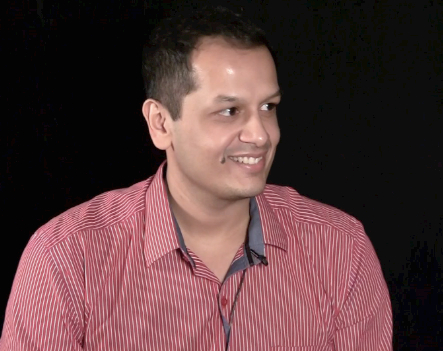
Manav Gupta, founder and chief executive officer of Hong Kong-based Internet Of Things (IoT) accelerator Brinc, shares his thoughts on the IoT revolution, manufacturing, what our future look like when all of the world's devices "speak" with each other, and why he chose Hong Kong to start Brinc.
Q: Why do you focus on smart hardware, or Internet of Things (IoT) sector, at Brinc?
A: Because we think it is one of the most exciting industries to be in. Around 20 billion devices are predicted to become "smart" in the next ten to fifteen years.
We are looking at a multi-trillion dollar market opportunity for solution providers, cities and governments, and entrepreneurs focused on building great consumer products, which is our real focus.
Q: How many trillion did you say?
A: Predications are all over the place, but we could be looking at a US$7 trillion economy globally, because IoT is going to play a role in almost every device we purchase.
The potential to inter-connecting all the devices with the right sensors and enabling values for consumers is massive.
Q: How did you come up with this unique name, Brinc?
A: Brinc combines brilliance and innovation together. It also means going to the brink of success or to the brink of failure as quickly as possible. That is what we do, empowering IoT entrepreneurs to successfully develop and launch their businesses in the quickest possible time.
Q: What are some interesting examples of the companies that you have backed so far?
A: During the past nine months since we launched in Hong Kong, we have completed 12 investments over three batches. We supported companies in smart music, smart home wearables and smart sports.
One cool company we have backed is called Aumeo Audio. They allow people to hear music according to their own earing characteristics. It is like eye glasses for your eyes.
Q: What is your process of helping out IoT entrepreneurs?
A: The first step is acceleration, which is helping them to develop the business models correctly and design the products. We clean up all the challenging things that they might not have thought through, such as getting the positioning right, how to go to market, etc.
The second step is product development, where entrepreneurs will launch their products to the public.
The last stage is to help them go to global distribution partners all around the world and start shipping.
So from the beginning, we think through to the very end to validate if that product has a place in the world. We talk to our distribution and retail partners to validate if they would put this product on shelves once it is developed and made.
Q: How do you picture our future after the IoT revolution touches every facet of our lives?
A: I think IoT 1.0 was when manufacturers made single smart devices. For example, they put sensors in a toothbrush to monitor our activities.
We are now moving into IoT 1.5, where devices are getting smarter and interacting with the cloud and services around us. So that toothbrush may integrate with an award system, or sharing that data with your doctor.
Our future is IoT 2.0. That's when all the devices would be speaking to each other. So, that toothbrush can be connected with our weight scale, or our physical activities, to create more consumer value.
Q: Lastly, why did you set up shop in Hong Kong?
A: Hong Kong has a fantastic intellectual property system. There are unbelievable ecosystem partners that have been supporting the old economy of trade and finance to support physical shipping of products all around the world. There is great government support with IP grants, internships and ESS grants. Across the border, you can find the best-in-class manufacturing capabilities, as well as the world's largest trading fairs.
What we can do here within a few months takes tremendously longer anywhere else because all of our partners are here.
